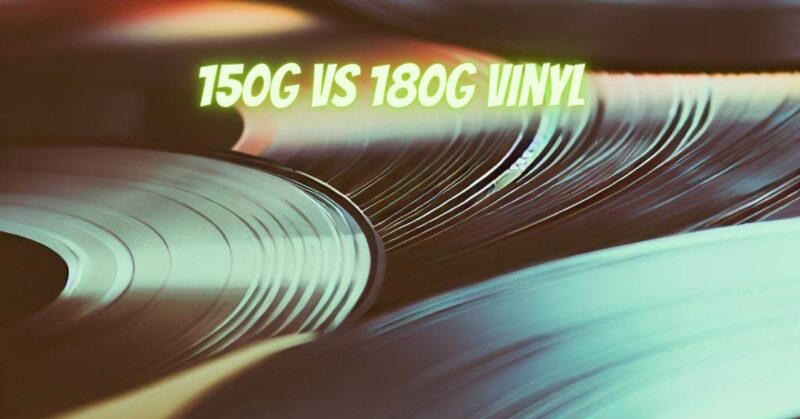Vinyl records have staged a remarkable resurgence, capturing the hearts of audiophiles and music enthusiasts alike with their warm sound and tangible appeal. In the realm of vinyl, the weight of the record, measured in grams, has become a topic of fascination and debate. This article dives into the distinctions between 150g and 180g vinyl records, shedding light on the impact of weight on sound quality, durability, and overall vinyl experience.
Understanding Vinyl Weight: Vinyl records are typically available in a range of weights, most commonly 120g, 150g, and 180g. The weight is a measure of the thickness of the vinyl used to press the record. Heavier records are often associated with enhanced sound quality and durability.
The Influence on Sound Quality:
- 150g Vinyl: Records pressed on 150g vinyl strike a balance between the benefits of weight and cost-effectiveness. While they might not offer the same level of sonic enhancement as heavier records, they generally provide satisfactory sound quality.
- 180g Vinyl: Heavier records, such as those pressed on 180g vinyl, are often associated with improved sound quality. The extra thickness can result in reduced vibrations and more stable playback, potentially contributing to enhanced clarity and fidelity.
Durability and Handling:
- 150g Vinyl: Records weighing 150g are generally considered durable and suitable for regular playback. They strike a balance between durability and ease of handling.
- 180g Vinyl: Due to their greater thickness and weight, 180g records are often perceived as more robust and less prone to warping. However, it’s important to note that both 150g and 180g records can experience warping if not handled and stored properly.
Collector’s Appeal: The weight of a vinyl record can hold collector’s appeal:
- 150g Vinyl: Collectors might seek out 150g records due to their availability, affordability, and often satisfactory sound quality.
- 180g Vinyl: Records pressed on 180g vinyl are sometimes viewed as premium editions, appealing to collectors who prioritize sound quality and the physicality of the record.
Manufacturing and Pressing Techniques: The weight of a vinyl record is not the sole determinant of its sound quality. Factors such as the quality of the vinyl compound, mastering, and pressing techniques play a significant role. High-quality mastering and precise pressing methods can result in excellent sound quality regardless of the weight.
Personal Preference: The choice between 150g and 180g records ultimately boils down to personal preference. Some listeners might find that the perceived improvements in sound quality from heavier records justify the potential higher cost. Others might appreciate the affordability and convenience of 150g records while still enjoying a satisfactory listening experience.
The debate between 150g and 180g vinyl records underscores the multifaceted nature of vinyl appreciation. While 180g records might offer potential advantages in sound quality and durability, 150g records are by no means inferior and can still deliver a gratifying listening experience. Whether you’re an audiophile seeking the ultimate sonic experience or a casual listener savoring the joys of analog music, both weight options contribute to the timeless charm and magic of vinyl playback.


